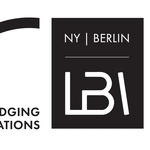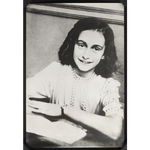The Political Thought of Leo Baeck

Join the Institute for Israel and Jewish Studies and the Leo Baeck Institute in-person at 617 Kent Hall on Wednesday, February 21, at 12:00 PM EST for a talk with Yaniv Feller (University of Florida) and Markus Krah (Leo Baeck Institute): "The Political Thought of Leo Baeck."
About the Talk
Leo Baeck was the revered leader of German Jewry during the Holocaust and one of the leading Jewish public intellectuals of the twentieth century. He was a man steeped in the religious discourse of his time, but he was not merely a religious thinker. Rather, Baeck was profoundly shaped by the imperial constellations in which he lived. This insight sheds new light on his work as a political thinker during the Wilhelmine Empire as well as his writings and decisions during the Holocaust. The result is a new appreciation of his thought, including as it emerges from Baeck’s unpublished manuscripts and his lectures in the Theresienstadt Ghetto.
Speakers
Yaniv Feller is an assistant professor of Religion and Jewish Studies at the University of Florida. He is the author of The Jewish Imperial Imagination: Leo Baeck and German-Jewish Thought, which won the Jordan Schnitzer First Book Publication Award of the Association for Jewish Studies. Yaniv has published articles on themes such as moral value of resentment, modern gnosis, and Christmas trees.
Markus Krah is the Executive Director of the Leo Baeck Institute. An American-trained, Germany-based scholar, Krah earned his Ph.D. at the Jewish Theological Seminary, New York, in Modern Jewish Studies with a dissertation that became the basis for his monograph, American Jewry and the Re-Invention of the East European Jewish Past (DeGruyter, 2019). In 2021, he was awarded the LBI’s Gerald Westheimer Fellowship to support his research on Salman Schocken’s efforts to promote a Jewish intellectual and spiritual renaissance in post-war America with the US Schocken imprint’s initial program of classic German-Jewish texts. He has published numerous peer-reviewed scholarly articles and served as editor of PaRDeS, the journal of the Association for Jewish Studies in Germany. Before he began his academic career, Krah worked for over a decade as a journalist, including as the chief correspondent of the German-language service in Reuters’ Berlin Bureau.




